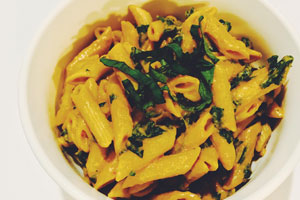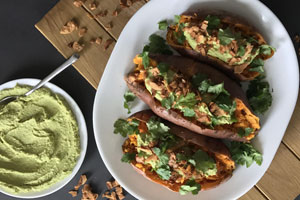1. A strawberry isn’t a berry but a banana is.2. The Strawberry is of the Rose Family.
3. Avocados and watermelon are berries, too.
4. Cashews grow on trees like this:4. And Brussels sprouts grow in long stalks like this:8. McDonald’s sells 75 hamburgers every second of every day.
9. Yams and sweet potatoes are not the same thing.
10. Ripe cranberries will bounce like rubber balls.
11. An average ear of corn has an even number of rows, usually 16.
12. Betty White is actually older than sliced bread.16. Vending machines are twice as likely to kill you than a shark is.
17. Coconuts kill more people than sharks every year. So do cows.
18. Pound cake got its name from its original recipe, which called for a pound each of butter, eggs, sugar, and flour.
19. The probability of you drinking a glass of water that contains a molecule of water that also passed through a dinosaur is almost 100%.
20. Honey is made from nectar and bee vomit.21. Pineapples grow like this:22. Quinoa is the seeds of this plant:23. Kiwis grow on vines:24. Ginger is the root of a plant:25. And cinnamon is just the inner part of this tree:26. And artichokes are flowers that are eaten as buds. This is what they look like when flowered:27. “Spam” is short for spiced ham.
28. Popsicles were invented by an 11-year-old in 1905.
29. Apples, like pears and plums, belong to the rose family.
30. The official state VEGETABLE of Oklahoma is the watermelon.
31. Peas are one the most popular pizza toppings in Brazil:32. There are over 7,500 varieties of apples throughout the world, and it would take you 20 years to try them all if you had one each day.
33. The twists in pretzels are made to look like arms crossed in prayer.
34. Canola oil was originally called rapeseed oil, but renamed by the Canadian oil industry in 1978 to avoid negative connotations. “Canola” is short for “Canadian oil.”
35. And no matter what color Froot Loop you eat, they all taste the same. Enjoy Your Appetite!
Enjoy Your Appetite!
Articles »
Why I Left the CIA and Became a Plant-Based Food Blogger

In January 2015—right after my boyfriend of four years proposed to me—I had a bit of a personal crisis. I wanted to be healthier. Correction: I wanted to be thinner.
It may sound like a simple desire to bring to fruition, but it felt as though my body was working against me. Unless I was exercising vigorously four to five times a week and munching on nothing but carrots, my body stayed the same size.
Around this same time I was in my second year of working at the Central Intelligence Agency (CIA) as an analyst. I was halfway through a training program that teaches new analysts how to write, brief, and think critically. Many of my colleagues were excited to learn how to hone their craft and become the best analysts they could be. I, however, was less than enthused. As time wore on, my lack of interest began to affect my work and I got mediocre scores on my assessments.
As I dealt with the many facets of my personal crossroads I turned to the one thing that consistently brought me joy—food. I would write down recipe ideas and grocery lists on scrap pieces of paper in meetings. Evenings and weekends would be spent experimenting with new ingredients, visiting local farmers’ markets, reading food blogs, or watching The Food Network.
My love for cooking and food turned into my escape. I would prepare rich, decadent meals in an effort to soothe my body with comfort food and to express the creative energy I felt was stifled during my workday.
I did not realize how far I had slipped until I took a trip to Jamaica in April, 2015. Throughout the entire trip I felt bloated and out of shape. I vowed to myself that I would make concentrated efforts to change my lifestyle upon my return to the United States.
Slowly, I began experimenting with food as a way to help me become healthier, not just as a means of escapism. Exercising was never difficult for me but it felt like there was a force working against me, thwarting my efforts. As I resumed a regular exercise routine I started seriously thinking about dietary changes. For about a year, I experimented with vegetarianism, pescetarianism, and even veganism. These trials were stimulating but not quite effective. After periods of virtual starvation I would relapse back into unhealthy eating patterns.
Most of these thoughts were put on hold when my husband and I got married in August, 2016. In the months leading up to the wedding we decided that I would leave the CIA and move to North Carolina with him. Interestingly enough, this decision did not frighten me. I approached our wedding day like a student anxiously awaiting the last day of school. Leaving a job that never felt like a good fit for the unknown was the most exciting thing I had done in years.
The next day I stopped by the library near my house to start my research journey. It must have been fate because the first book I picked up was Food Over Medicine: The Conversation that Could Save Your Life by Glen Merzer and Pamela Popper. I went home and finished this book in two days. I emerged from this book a changed person. I went on a rampage to learn more about the Whole Food, Plant-Based Diet. I watched the documentary Forks Over Knives, borrowed the book The China Study from my mother, and watched Dr. Pam Popper’s lectures on YouTube. I also started blogging about my plant-based recipes. I tapped into a passion for food, especially food that could heal people, and it was bursting out of me.
Finally, I decided that I needed some kind of education. I did not need a course to teach me how to cook but I needed a course to teach me why to cook this way. I needed to understand how the whole food, plant-based lifestyle could potentially change millions of lives. I found the T. Colin Campbell Center for Nutrition Studies and knew the Plant-Based Nutrition Certificate course was perfect for me. Although I had some money saved in anticipation of my period of unemployment, the class would make a significant dent in my savings. I remember talking to my husband about it, wondering how I could make this work. He said, “If this is really what you want to do, I will help pay for the course.” I registered for the certificate program that very day.
In December, 2016, I graduated from T. Colin Campbell Center for Nutrition Studies, energized by the lessons I had learned. During the course I began consuming about 85% of my calories from whole, plant-based foods and dramatically reducing my oil and added fat consumption. It was not until I made these changes that I truly saw a difference in my appearance and energy level. The course also showed me just how misinformed average Americans are when it comes to nutrition, especially minority communities. Debilitating conditions like diabetes, obesity, and hypertension are ravaging millions of Americans and there seems to be very little being done about it. I knew that I had a unique voice to add to the movement.
In January, 2017 I founded my own company and the primary goal is to spread awareness about the health benefits of living a whole food, plant-based lifestyle, especially to men and women in minority communities. Whether online or in a client’s kitchen, I love to spend my time exposing people to the simplicity of plant-based cooking and how to reclaim control of their health.




















